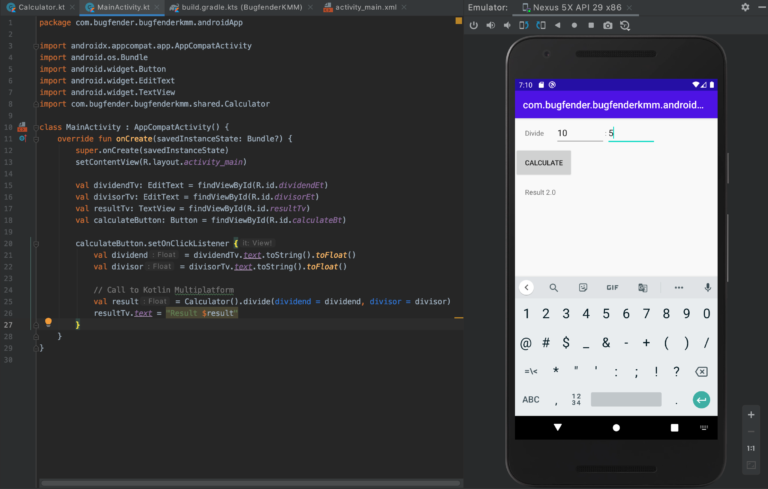
With it, comes the speed of delivery, better quality, and knowledge sharing.

All of these are pretty essential parts of any mobile application and we could easily write them once in cross-team collaboration, cover it with tests and use it on both platforms.Įvery Multiplatform project in a nutshell In our legacy applications, we saw that big chunks of codebase could be shared between platforms - network layer, analytics, data persistence, most parts of business logic.
Appcode kmm code#
The biggest benefit - code reusability and maintenance. Why did we decide to go with the Multiplatform approach?
Appcode kmm android#
Dreaded" comparison, according to StackOverflowīut as an Engineer - you should be always open to new challenges and for learning new technologies, our world evolves so fast that you should be on the same pace with new technologies, and gaining new skills is a MUST if you want to succeed.Īnd surely I wasn't a totally new person in the Android world - my Uni thesis was about an application written in Kotlin, so life kind of prepared me for such a turn of things :) Swift, Kotlin, and Objective-C "Loved vs.

Imagine - you just started a career with a pretty complicated language like Objective-C, then switched to much more pleasant Swift, developed your skills there and now you should change your paradigm and work on Kotlin and think as an Android developer (spoiler - not really). Surely, I've already had some experience in building Android applications in Kotlin, but still, as an iOS Engineer, just the thought of working with Kotlin on a daily basis was frightening. And recently, at FootballCo, we started building brand-new Goal news and live scores application for, which will be developed using Kotlin Multiplatform, and in this article, I want to share my experience of writing and maintaining a Multiplatform code.Īt first, I was very confused (and a bit scared, there's nothing to be ashamed of).

I considered (and still consider) myself as a "non-believer" in cross-platform solutions like React Native or Flutter - it's interesting and usable for small-scale projects and not really for bigger ones, because of its maintenance problems and scalability. Throughout my career, I was always focused on learning only native iOS technologies such as Objective-C and Swift. How an unthinkable thing turned out to be an interesting experience


 0 kommentar(er)
0 kommentar(er)
